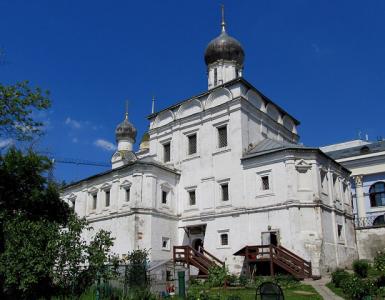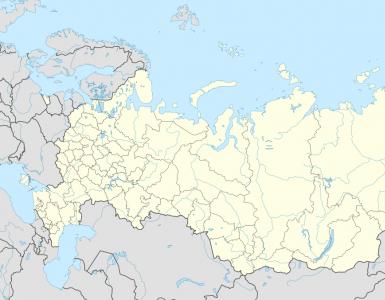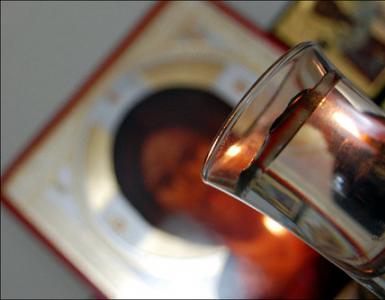Zhukovka (Dmitrovsky urban district). Temple in the name of the Holy Prince Alexander Nevsky, Zhukovka Temple in Dmitrovsky district, Zhukovka village
Beginning of summer in Zhukovka
The Church of Saints Peter and Paul was restored in the village of Zhukovka in 1993. This happened only thanks to the initiative of local residents. The Church was created by the believers themselves at a turning point in history: in the dashing nineties, when the primary task was to survive at all. And then the residents asked that a wooden church be rebuilt. Just as time itself dictated such a condition to them, so people decided to find salvation in God.
Stone at the entrance
Even now, people are increasingly turning to God with requests; they are coming to faith consciously. This is why so many pilgrimage tours are organized in Belarus.
Someone will say: there are many such churches in Belarus. But the church in Zhukovka is not just a landmark, but a functioning temple for believers. There is a huge stone in front of the entrance to the temple. The date on it is 1884. This is probably the year the church was founded, but no authentic documents remain about the history of the church.
Saints Peter and Paul
An icon of Saints Peter and Paul hangs above the entrance to the temple. Orthodox believers celebrate the patronal feast day of these saints on June 29. This is one of the great holidays among the Orthodox. Once upon a time, our ancestors held round dances on this day, sang songs and swung on swings. And even now this holiday is very revered. The celebration of the day of Saints Peter and Paul is the day of the height of summer.
Are you planning a trip for this day? Where, if not in Zhukovka, among the Belarusian calm and pleasing landscapes, can you fully feel the arrival of summer. You may be lucky with the weather. And if not, then don't be upset. Because you will get to know the Church of Saints Peter and Paul. The small structure of the temple is green, it seems to merge with the nature surrounding it. Silence, tranquility and a kind of peace reign here.
Excursion to Zhukovka
Typically, a visit to Zhukovka and its main attraction - the Church of Saints Peter and Paul - is part of an excursion that includes the villages of Budy, Karpilovka, Khoruzhentsy and Okopy. You will visit various attractions. But, without a doubt, the Church of Saints Peter and Paul will not leave you indifferent. This small island of holiness, which is accessible to all believers, can be a real discovery for you. After all, it is from this small village that the route begins. But, if you travel on your own, you can easily create your own route. For individual travelers, a visit to Zhukovka will be a pleasant opportunity to take a break from the bustle of the capital. After all, the village of Zhukovka is located 34 kilometers from Minsk.
You have a wonderful chance to go to a quiet corner, where there is a small but cozy temple where you can pray in silence and ask God for the journey to go well. In the temple you will find peace and quiet that will help you rest your soul, take a short break in life and feel a surge of strength. Because clean air, beautiful nature and the church smell of incense have a beneficial effect and help you forget about the bustle of city life, at least for a while.

The village is located in the north of the central part of the region, approximately 8 km north of Dmitrov, on the Yakhroma-Yakot watershed, the altitude of the center above sea level is 159 m. The nearest settlements are Knyazhevo in the south and Ochevo in the east.
At the beginning of the 17th century, on the site of the future village there was the Tikhanov wasteland, which belonged to Demid Batyushkov. In the 1880s there were already six peasant households here. Families of peasants were brought from villages located in different counties and belonging to the owner of the village - Duma nobleman Afanasy Tikhanovich (Tikhonovich) Zykov. The village began to be called Tikhanov, and then - “Zhukova, Tikhanova too.”
Zykov's daughter, Natalya, married Ivan Petrovich Lopukhin, and in 1705 the village was already his. Ivan Lopukhin in 1692 was the room steward of Tsar Peter I, and in 1716 he had the rank of major. Under him, the Church of the Epiphany was built, which, however, was abolished already in 1776; in memory of her, a wooden chapel was built, which remained until the middle of the 20th century. In 1770, Alexei Ivanovich Lopukhin, who inherited the village, mortgaged it to Prince Ivan Alekseevich Beloselsky, who, after the death of Alexei Lopukhin, sold it in 1777 to his widow Anna Nikolaevna. She married Colonel Alexei Ivanovich Isaev for the second time, who became the owner of the village of Zhukovo at the end of the 18th century.
At the beginning of the 19th century, the village was owned by secret councilor Ekaterina Semyonovna Turgeneva, the wife of the director of Moscow University I. P. Turgenev. In 1832, it was acquired from Alexander Ivanovich Turgenev by colonel and famous professional card player Luka Ilyich Zhemchuzhnikov (02/03/1783-12/22/1856), who bequeathed it to the young children of his deceased daughter Sophia, who was married to Lieutenant General Karl Alexandrovich Bellegarde - then in It included 74 souls of serfs.
Under the Bellegardes, from the middle of the 19th century, the modern name began to be used Zhukovka. In 1874, one of the heirs, Alexander Karlovich Bellegarde, sold Zhukovka to Pyotr Vasilyevich Bolotnikov, the future husband of his sister Praskovya Karlovna.
Zhukovka website, selling goods via the Internet. Allows users online, in their browser or through a mobile application, to create a purchase order, select a method of payment and delivery of the order, and pay for the order.
Clothing in Zhukovka
Men's and women's clothing offered by the store in Zhukovka. Free shipping and constant discounts, an incredible world of fashion and style with amazing clothes. High-quality clothes at competitive prices in the store. Big choice.
Children's store
Everything for children with delivery. Visit the best children's goods store in Zhukovka. Buy strollers, car seats, clothes, toys, furniture, hygiene products. From diapers to cribs and playpens. Baby food to choose from.
Appliances
The catalog of household appliances in the Zhukovka store presents products from leading brands at low prices. Small household appliances: multicookers, audio equipment, vacuum cleaners. Computers, laptops, tablets. Irons, Kettles, Sewing machines
Food
Complete catalog of food products. In Zhukovka you can buy coffee, tea, pasta, sweets, seasonings, spices and much more. All grocery stores in one place on the Zhukovka map. Fast delivery.
A village in the Dmitrovsky district of the Moscow region.
Administratively subordinate to the urban settlement of Dmitrov.
Previously within the boundaries of the Orudyevo rural district.
As of 2006, the officially registered population is 276 people. In 2010, 340 inhabitants (165 men, 175 women).
Postal code - 141825.
A village located in the northernmost part of the Dmitrovsky district. In the old days they wrote that her houses were located “on both sides of the Kashin highway.” After the construction of the Savelovskaya railway, when the Kashinsky tract lost its former importance, the road to Zhukovka acquired a local character.
But it's not just the road that has changed. The name of the village and its owners changed several times. Initially, the village was called either Zhukova or Tikhanova. Then both names were combined and written: “Zhukov village, Tikhanova village”, or vice versa. The modern name Zhukovka began to be used around the middle of the 19th century.
At the beginning of the 17th century, on the site of the future village there was the Tikhanov wasteland, which belonged to Demid Batyushkov. He was a fairly wealthy and respected man, and held the elected position of governor in the district.
The village of Zhukov was built in the 70s - 80s of the 17th century and then consisted of six peasant households. Families of peasants were brought from villages located in different counties and belonging to the owner of the village, Duma nobleman Afanasy Tikhanovich Zykov. The names and nicknames of men and boys from these families are preserved in the scribe books. It is possible that one of them is a distant ancestor of one of the modern inhabitants of the village.
After Afanasy Zykov, the village was owned by his widow Avdotya Petrovna and daughter Natalya. She married Ivan Petrovich Lopukhin, and in 1705 the village was already registered with him. All that is known about Ivan Lopukhin is that in 1692 he was the room steward of Tsar Peter I, and in 1716 he had the rank of Major.
In his village, I. Lopukhin built the Church of the Epiphany, and the village became a village, but not for long. In 1776 the church was abolished. Later, in memory of her, a wooden chapel was erected at this place, which survived until the mid-20th century, although in recent years it was used as a milk collection point.
In 1734, Ivan Petrovich Lopukhin passed away. The village of Zhukovo and Tikhanovo also went to his son Alexei. In 1770, he mortgaged his estate to Prince Ivan Alekseevich Beloselsky, who, after the death of Alexei Lopukhin, sold this estate in 1777 to his widow Anna Nikolaevna. She married a second time to Colonel Alexei Ivanovich Isaev. At the end of the 18th century he became the owner of the village of Zhukovo.
Since the beginning of the 19th century, the village was owned by secret councilor Ekaterina Semyonovna Turgeneva. She had four sons, two of them were prominent public figures: the historian Alexander and the Decembrist Nikolai. In their youth, they visited their mother’s estate, but, judging by the surviving correspondence, the brothers did not have warm feelings for her. Ekaterina Semyonovna had a very unbalanced character, children and courtyard people “got it” from her.
In 1824, E. S. Turgeneva died and, according to her will, was buried in the Nikolo-Peshnoshsky Monastery. Ten years after the death of his mother, Alexander Turgenev sold the village to Colonel Luka Ilyich Zhemchuzhnikov. And after him, Zhukovka obviously went to his daughter Sofya Lukinichna, who was married to Lieutenant General Karl Alexandrovich Bellegarde. After the death in 1857 of S. L. Bellegarde, and then of C. A. Bellegarde, the village was owned by their children, but with the reform of 1861, such small villages, as a rule, were mortgaged or sold to their owners for debts, and, apparently , since the 70s of the 19th century, landowners have not been here.
There is a lot to be said about the village itself. At the end of the 18th century, there were 32 peasant households in which almost 200 adults lived. In subsequent years, the number of households in Zhukovka changed. Average numbers are 20 - 26 households and 150 - 160 people.
The location of the village on the main road suggests that while the Kashinsky tract existed, there could have been an inn, a teahouse or a tavern in Zhukovka.
In the first years of the 20th century, a primary school was opened in the village, which operated during Soviet times. Now only its building remains. The main occupation of the peasants was agriculture. But in winter, some went to earn extra money, in particular, to Kimry or Taldom, where they worked in shoemakers’ artels.
Now Zhukovka is more of a village on the road from Dmitrov to Knyazhevo. This road, which practically coincides with the old Kashinsky tract up to Zhukovka, turns sharply to the west before reaching the middle of the village, while the tract goes straight.
The village has a separate retail outlet and a bus stop. There is another stop near the entrance to the territory of the former military unit, located further along the highway towards the village of Knyazhevo. To the north-west of the village there is a small cluster of summer cottages, where a gas pipeline has already been installed. Of course, gas also appeared in the village itself.
As for the village itself, it cannot be said that it is falling into oblivion or “falling apart” - on the contrary, along with the old huts there are new modern buildings. There is noticeable activity on the street during the day. There is a cowshed near Zhukovka. Among other things, in the village itself there are 2 fire ponds.
Only ruins remained of the military unit. Only walls remained of many barracks buildings, the bathhouse building and the ammunition storage facility were almost intact, but only ruins remained of some other structures. There are 2 fire ponds on the territory of the military unit. On the other side of the main street of the military unit there are houses of officers, which are still inhabited. The homes include woodsheds and a water tower.
.jpg)





The first Orthodox church in Zhukovka appeared at the end of the 19th century. “The temple in the name of the holy noble prince Alexander Nevsky was built in Zhukovka in 1896 in memory of the rescue of the royal family during a train crash near the Borki station in 1888,” says the historical description of churches and monasteries of the Oryol diocese (vol. 1.1905).
Zhukovka at that time, according to the Bryansk Zemstvo Administration, was a small village in which just over 600 people lived. In the village there was a flour-grinding steam mill of F.I. Zhukovsky, an iron smelter of S.S. Radushevich, a sawmill, four bakeries, three lumber warehouses, a wine warehouse, 13 retail outlets and a canteen in the station building. By religion, 525 Orthodox Christians, 59 Jews, 10 Catholics and 2 Lutherans lived in Zhukovka at that time. The male population exceeded the female population by almost 3 times.
The Zhukovsky Church in the name of the Holy Blessed Prince Alexander Nevsky did not have its own priest until 1898. The church was assigned to the oldest volost Nikolaevskaya, built in 1795 in the village of Foshnya, which is 15 versts from Zhukovka station. An independent parish was opened in Zhukovka in 1898 and consisted of the village of Zhukovka and the villages of Zhukovka, Meskovichi, Sidorovka, Titovka, Orlovka and Vyshkovichi. The number of parishioners of both sexes was 1369 souls.
Archpriest John I. Sergiev (Kronstadtsky) donated 200 rubles for the construction of the temple in Zhukovka. However, as stated in the “Historical Description of Churches and Monasteries of the Oryol Diocese”, the main donor during the construction of the temple was the nobleman G.I. Gantskevich. He donated 1,600 rubles and 15.5 acres of land for the construction of the temple. (For information, 1 dessiatine = 1.0925 hectares).
The Gantskevich family settled in Zhukovka at the end of the last century. By religion they were Catholics. The father of the family, Joseph Dominicovich, was in charge of the forestry of the Bryansk factories, owned by Prince V.N. Teneshev.
Prince V.N. Teneshev was then the undivided owner of the Bryansk factories and local forest dachas. One of the sons of Joseph Dominikovich, G.I. Gantskevich was not only a member of the board of the Joint Stock Company Bryansk Plants owned by Teneshev, but also a manager.
The first temple in the name of St. Alexander Nevsky, according to the stories of the guards, rose approximately on the spot where the bank building is now located. Next to the temple there was a church cemetery (on the site of a modern square between the bank building and the city market). Many worthy sons of our Fatherland are buried here. In particular, the founder of the anti-tuberculosis sanatorium in Zhukovka, Doctor V.S. Mikhailov, as well as the nobleman G.I. Ganskevich, who is also known as the founder of the wagon train industry in Zhukovka.
There is a version that a well-known Russian industrialist-entrepreneur, a native of serfs, who received the title of Privy Councilor, nobleman, Honorary Citizen of Russia P.I. Gubonin for his active charity, is buried here.
In 1868, he built a railway here, which gave rise to the growth of Zhukovka. He can rightfully be considered one of the founders of our city. In some sources, the place of death of P.I. Gubonina - the city of Gurzuf, but the burial place is not named.
Associate professor of the BSPU, candidate of historical sciences, local historian V.V. Krashennikov in his book “From the history of families of the Bryansk region” specifically names the burial place of P.I. Gubonin - Zhukovka and the date of his death - 1894.
After the coup of 1917, the temple, like thousands of churches in Russia, was closed. In 1931, local “activists” removed the bells from the church. Since then, the ringing of Orthodox bells has not been heard over Zhukovka for more than 60 years.
On April 26, 1942, the Zhukovsky partisan detachment under the command of Commissar G.V. Maltsev destroyed the temple. (Journal of military operations, Zhukovsky partisan detachment, Rognedi Partisan Brigade. State Archive of Contemporary History, Smolensk Region).
The construction of the current temple in the name of the holy noble prince Alexander Nevsky began in 1989. with the restoration of the parish community. With the blessing of Bishop Paisius of Oryol and Bryansk (+2008 ), on May 4, 1991, the foundation stone of the future temple was consecrated. On May 4, 1995, Archbishop Melchizedek of Bryansk and Sevsk (now retired) performed the rite of consecration of the new temple.
The rector of the temple is Archpriest Rustik Bogatyrev, dean of the Zhukovsky district.
The clergy of the temple are Priest Evgeny Khenkin, Priest Sergiy Bogatyrev













